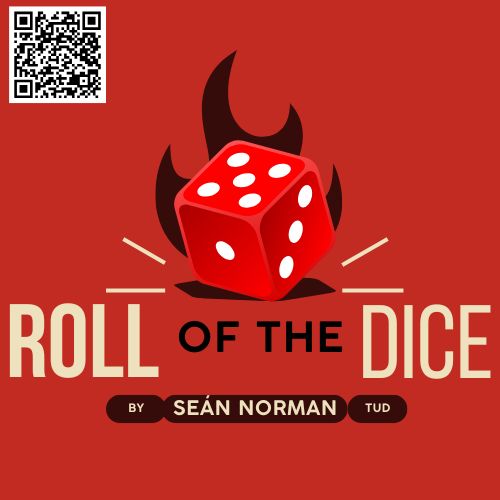Roll of the Dice
Roll of the Dice is a story about people who play Dungeons and Dragons. Dungeons and dragons is a tabletop roleplaying game and is enjoyed by nearly 50 million people worldwide. It has been adapted into video games, movies and television shows and with the release of the newest handbooks it shows no signs of slowing down.
This documentary is a love letter to the game and the players involved, it explores how the game has become a formative part in many individuals lives and given them stories to tell and memories to hold onto for the rest of their lives. The project was created to let people into the world of Dungeons and Dragons and tell the stories of the people who play, why the play, how the game has helped them and many others.
Roll of the Dice focuses on four individuals who share a table and tell tales of their experiences with the game. The programme also features Dr. William Nation, an American psychologist who has been running group therapy sessions with players in John Hopkins University and how he’s been using the game to help his players work through real world problems they face. Alongside him is Orla Walsh, a PhD student at UCC and is currently writing her PhD on the ways in which Dungeons and Dragons plays a part in people’s lives, whether it be as a way of becoming more self-confident or dealing with the grief of losing a loved one.
Roll of the Dice was inspired by hearing how players found the game to be an incredibly important part of their lives, often it was the thing they were looking forward to at the end of their week. I wanted to explore why people felt so strongly about the game and along the way see if the benefits they noticed were simply placebo or if the game had real world applications that could be used to improve a person’s mental health. The project also aimed to introduce a potentially new audience to the game, and I could think of no better spokespeople than those who love and enjoy it every single week.
The documentary delves into facets of the game many people may not associate with it. The deep story telling opportunities that the game presents, how people who play feel that they develop deep bonds with those in their party. Players who use the game to help with neurodivergent traits and how the game has helped to explore relationships away from the table.
If you have ever wondered why someone would chose to put on a voice and sit around a table rolling dice while simply imaging a world in front of them than I hope this documentary can put this seemingly odd choice into perspective.
